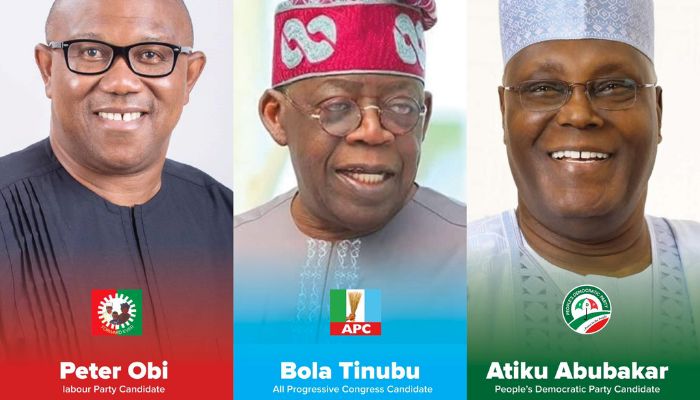According to a recent survey released on Thursday, September 15, the candidates of the Labour Party, Mr. Peter Obi; the All Progressives Congress, Mr. Bola Tinubu; and the Peoples Democratic Party, Mr. Atiku Abubakar, are in a three-way contest for the presidency in 2023.
Peter Obi is in the lead with 21% of the vote, according to the results of the poll that was conducted by NOI Polls Limited on behalf of the Anap Foundation.
His votes gave him an 8 percent advantage over Tinubu of the APC and Abubakar of the PDP, who both received 13% of the vote to finish tied second in the poll.
Read Also: El-Rufai Lauds Military’s Offensive Against Terrorists
With 3% of the vote, Nigeria Peoples Party (NNPP) presidential candidate Rabiu Kwankwaso came in fourth place.
A statement by Anap Foundation’s President and Founder, Mr Atedo Peterside revealed;
“Mr. Peter Obi’s 8 percentage point lead at this early stage is significant, but not sufficient to separate him completely from a leading pack of candidates scoring 21%, 13%, and 13% respectively.
“Undecided voters and those who prefer not to reveal their preferred candidate add up to a whopping 32% and 15% respectively.
“The gender split of undecided voters shows that 39% of women are undecided versus 27% of male voters.
Undecided voters and those who prefer not to reveal their preferred candidate add up to a whopping 32% and 15% respectively.
Analytical Breakdown
The percentage of registered voters is as follows in each of the zones – 99% in the North East, 90% in the South South, the North Central and the North West respectively. The lowest registered voter percentages were in the South East with 88% and the South West with 85%.
When asked if respondents were aware of the various candidates vying for the Presidency, data gathered showed that 99% of the respondents were aware of Asiwaju Bola Ahmed Tinubu of the APC. 98% were aware of Alhaji Atiku Abubakar of the PDP. 95% were aware of Mr. Peter Obi of LP and 74% were aware of Dr. Rabiu Kwankwaso of the NNPP. All other candidates scored below 55% in terms of name recognition.
Furthermore, the data summarizes the top five reasons why voters are more inclined to vote in the forthcoming elections, these include: – The need to tackle insecurity (45%), the Economy (20%), Education (9%), Unemployment (7%) and Poverty alleviation (4%).

